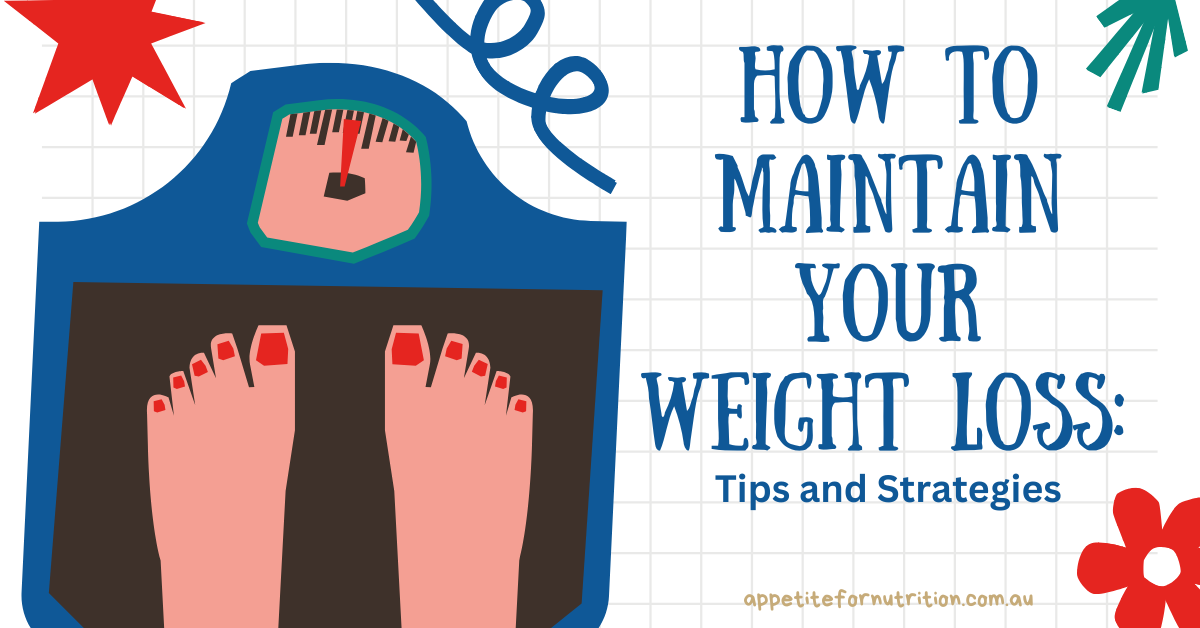
How To Maintain Your Weight Loss: Tips And Strategies
Congratulations on reaching your weight loss goal! 🎉
Now comes the important part — keeping it off for good. Maintaining weight loss can be challenging, but with the right habits and mindset, you can build a lifestyle that supports your health long term.
1. Stick to the Habits That Helped You Lose Weight
Sustaining weight loss isn’t about perfection — it’s about consistency.
Focus on a balanced diet that keeps your energy steady and supports your metabolism:
Fruits & Vegetables: Low in calories but high in fibre, vitamins, and minerals.
Lean Proteins: Helps maintain muscle and keeps you full (try chicken, eggs, tofu, or Greek yoghurt).
Whole Grains: Support digestion and help you stay satisfied longer.
Healthy Fats: Include sources like olive oil, avocado, and nuts — in moderation.
2. Know Your Maintenance Calories
Understanding your body’s energy needs helps prevent unwanted weight gain.
Your maintenance calories are the number of calories you need each day to maintain your current weight — based on your Basal Metabolic Rate (BMR) and activity level.
Use the Harris-Benedict Equation to estimate your BMR:
Men:
88.362 + (13.397 × weight in kg) + (4.799 × height in cm) - (5.677 × age in years)Women:
447.593 + (9.247 × weight in kg) + (3.098 × height in cm) - (4.330 × age in years)
Then multiply your BMR by your activity level:
Sedentary (little exercise): ×1.2
Lightly active: ×1.375
Moderately active: ×1.55
Very active: ×1.725
Super active: ×1.9
📊 Example:
A 40-year-old male, 170 cm tall and 80 kg with a sedentary lifestyle needs about 2,100 calories/day to maintain weight.
If he exercises regularly, this rises to around 2,700 calories/day.
3. Stay Physically Active
Exercise isn’t just for weight loss — it’s your best ally for keeping it off.
Aim for 150 minutes of moderate-intensity activity per week, plus 2 strength sessions to preserve lean muscle.
Why it matters:
Boosts metabolism and calorie burn
Improves cardiovascular and mental health
Reduces risk of weight regain
Enhances energy, sleep, and mood
4. Keep Track of Your Progress
Monitoring your food intake, exercise, and weight helps you stay accountable.
Use a food diary or nutrition app to spot patterns and maintain motivation.
If you find yourself slipping, revisit what worked for you during your weight loss phase.
5. Build a Support System
Surround yourself with people who encourage your goals — whether that’s family, friends, or a dietitian.
Having accountability can make all the difference in staying consistent and positive.
6. Be Patient and Kind to Yourself
Maintenance is a lifelong process, not a finish line.
There will be fluctuations — and that’s completely normal.
Focus on progress, not perfection. Celebrate small wins and keep your mindset growth-oriented.
Quick Recap: Your Weight Maintenance Formula
| Habit | Why It Matters |
|---|---|
| Eat balanced, whole foods | Keeps energy and blood sugar stable |
| Move regularly | Supports metabolism and mood |
| Track habits | Builds awareness and accountability |
| Stay consistent | Prevents weight regain |
| Seek support | Encourages motivation and resilience |
🥑 Take It Further: Meal Plans to Support Long-Term Health
If you’re ready to simplify healthy eating, explore our dietitian-designed Healthy Meal Plans.
These include practical, easy-to-follow plans for energy balance, weight management, and overall wellbeing.
Take the stress out of maintaining your progress.
Book a consultation with an Appetite for Nutrition dietitian today to get a personalised meal plan that fits your goals, preferences, and lifestyle.
This blog was last updated October 2025.
Frequency Asked Questions
Find quick answers to common questions
Our team of NDIS-registered dietitians helps clients make practical, evidence-based food decisions that fit their goals, lifestyle, and budget.
After weight loss, your body burns fewer calories because your metabolism adjusts to your new weight. Staying active, eating balanced meals, and keeping consistent routines help stabilise your metabolism and make maintenance easier long term.
Your maintenance calories depend on your age, gender, height, weight, and activity level. A qualified dietitian can calculate this precisely and create a tailored meal plan to suit your goals and lifestyle.
Not necessarily. Tracking can help you stay aware of your intake early on, but long-term success comes from developing mindful eating habits — learning to recognise hunger, fullness, and portion balance without constant counting.
A mix of cardio (like walking, swimming, or cycling) and strength training helps maintain muscle, boost metabolism, and prevent weight regain. Aim for about 150 minutes of moderate exercise weekly plus two strength sessions.
A dietitian or nutritionist can provide ongoing guidance, realistic meal plans, and strategies for staying consistent — especially during life changes or challenges. Regular check-ins can help you stay accountable and confident in maintaining your results.
(Learn more or book a consultation with an Appetite for Nutrition dietitian to get started.)

